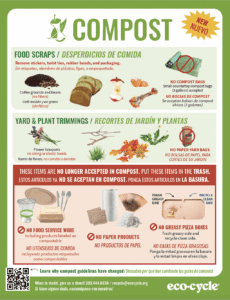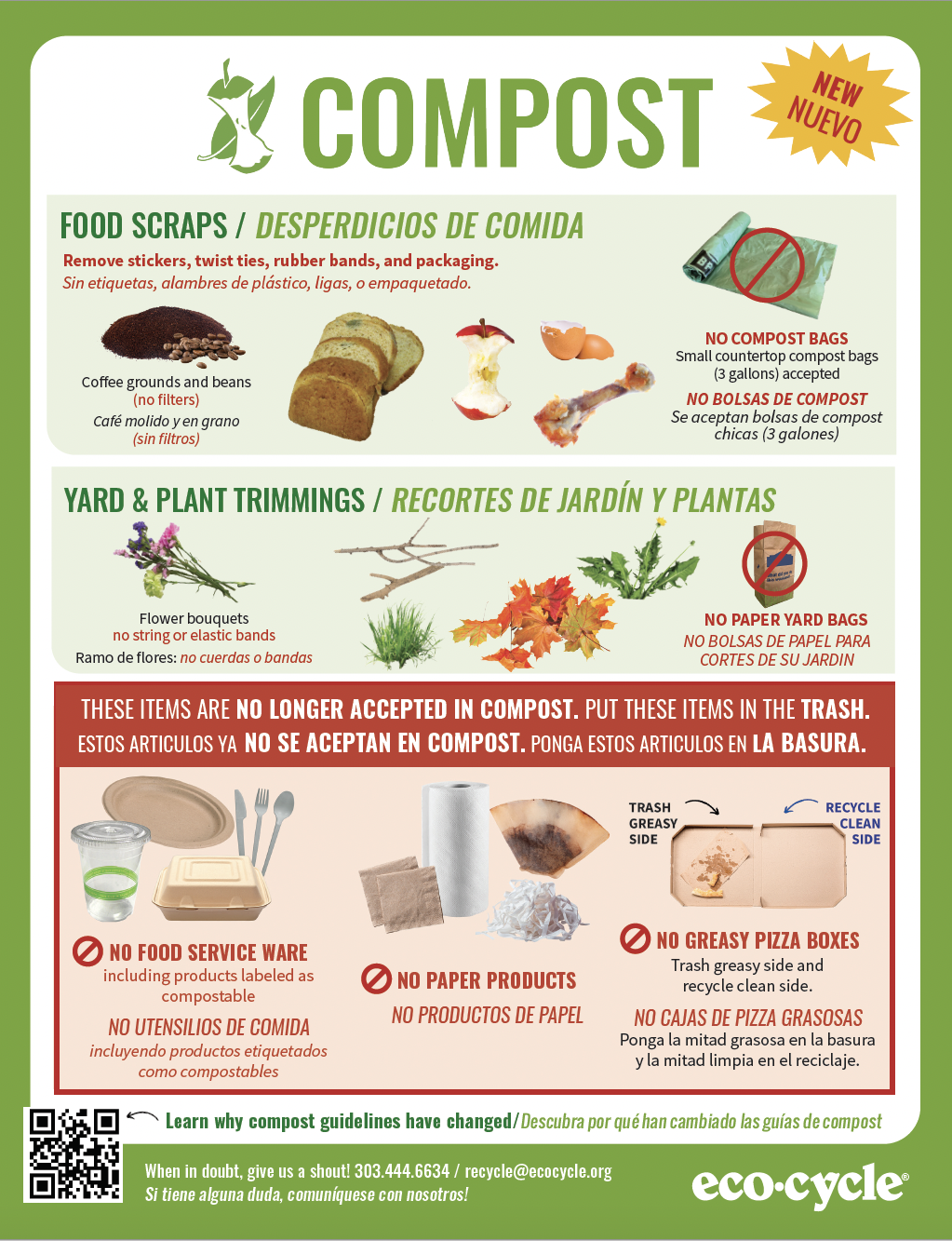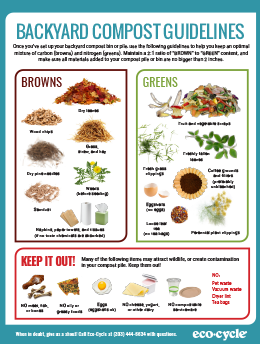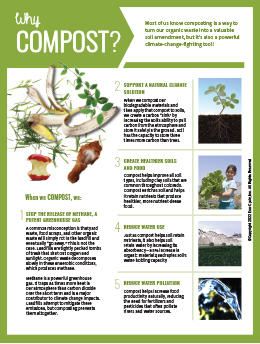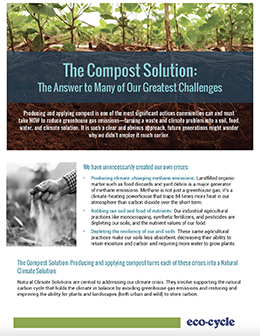Alert: New changes to compost collection guidelines! Food scraps and yard & plant trimmings ONLY!
Why are compost guidelines being simplified to food scraps and yard & plant trimmings only? To create a high-quality finished compost product. Clean compost = clean, healthy soils.
Compost haulers and municipalities all along the Front Range of Colorado are working with regional compost manufacturer A1 Organics to create a high-quality, CLEAN compost product. The goal is to keep organic materials like food scraps and yard trimmings out of the landfill to prevent harmful methane emissions while creating a valuable soil amendment that will help Colorado farms and landscapes build healthy soils that absorb carbon dioxide from the atmosphere, reduce water and chemical use, and grow nutritious foods.
The key is clean, contamination-free compost, and WE NEED YOUR HELP.
WHAT: A1 Organics, which operates THE ONLY large-scale commercial compost manufacturing facility serving Colorado’s Front Range, is joining other quality-driven compost manufacturing facilities around the country and world in dramatically simplifying the materials they accept from residential and business collection programs.
Compost guidelines are simplified to two categories ONLY:
- Food Scraps: Produce, bread, bones, meat, cheese, eggshells, coffee grounds (no coffee filters or tea bags), etc. REMOVE ALL produce decals, rubber bands, twist-ties, and anything that is NOT food.
- Yard & Plant Trimmings: Leaves, twigs, flowers, small branches, grass and yard trimmings, etc.
- Place all items LOOSE in your compost cart, unbagged. That’s it!
Materials NO LONGER ACCEPTED in curbside compost include:
- Paper products (e.g., paper towels, napkins, shredded paper, greasy pizza boxes, coffee filters, etc.)
- Compostable products (including certified compostable utensils, straws, tableware, bags, etc.)
- NO BAGS will be accepted, including compostable bags. The only exceptions will be 3-gallon-or-less A1–approved certified compostable bags and brown kraft yard bags accepted for specifically announced spring and fall collection events ONLY. We recommend you save money by avoiding all bags all together!
NOTE: Products labeled “compostable” are NOT recyclable. If you have these items, please throw them in trash for the landfill.
WHEN: Beginning April 1, 2023, entire compost truck loads containing anything OTHER than food scraps and yard & plant trimmings will be refused by the compost manufacturer and landfilled.
We ask that, beginning immediately, please put ONLY food scraps and yard & plant trimmings in your curbside compost cart at your home or business. If your hauler sees anything other than these items in your cart, your cart will likely not be collected for composting. Depending on your hauler (and whether it is from your home or business), you will have the opportunity to remove the contamination out of your organic materials collected for composting, or opt to have it hauled as garbage to the landfill at your expense.
WHY: Why are we seeing these changes to the compost guidelines?
A1 Organics is enforcing these new guidelines along the Front Range with all haulers and municipalities they serve due to increased contamination in the materials collected from businesses and residents. Although this material affects only a small percentage—less than 10%—of A1 Organics’ compost products, it is the most challenging percentage in terms of contamination. More than 90% of the organics A1 processes comes from clean sources. A1 Organics is making these changes in an effort to create a high-quality finished compost product from materials generated from municipal collections. The challenges these new guidelines are addressing are:
- Plastic, glass, metals, latex gloves, masks, etc., are mistakenly placed into compost bins and ultimately end up in A1’s finished compost product. Food scraps and yard & plant trimmings make excellent compost, but contaminants like plastic, glass, and metal break down into sharp pieces and/or microplastics that destroy the compost’s value, leaving A1 with a product they cannot sell.
- Plastic and plastic-coated paper products such as cutlery, tableware, cups, and straws have added to the volume of contamination A1 receives due to misleading and confusing labeling on products that are not compostable but look like they are. For every truly compostable product you might come across, there are several more “look-alikes” that mislead customers into thinking these items are compostable, when in truth they often contain noncompostable plastics.
- Compostable bags often contain and conceal noncompostable contamination.
- Not all “certified” compostable products break down into compost as fully or as quickly as composting manufacturers need them to. This is because certification standards test compostability based on laboratory conditions. Those conditions are not always replicated in the real conditions of the compost manufacturing facilities where they may not fully compost. The result is a finished compost product that is contaminated with bits of partially degraded “compostable” material.
WHERE: A1 is not the only compost manufacturer making these changes. Some other programs in early adopter compost communities, such as Portland, Vermont, and California, are doing the same as use of finished compost by agriculture and contamination produced by non-compostable materials increase.
























